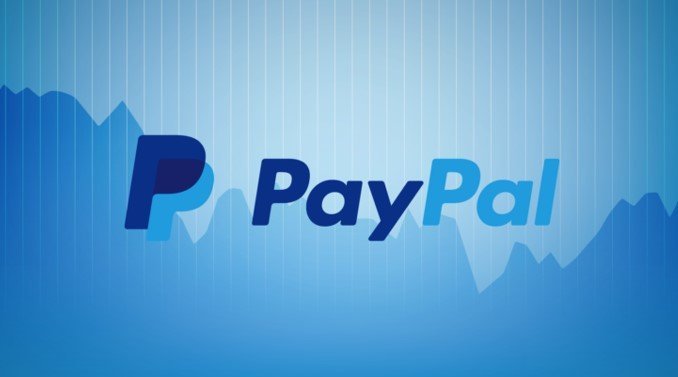Podcasting can be a full time job when content, audience, and money meet. What makes it work, where do earnings come from, how long does it take, and who succeeds most often. Learn why podcasts grow, when to focus on monetization, and how to turn a side show into steady work. This guide shows the steps, tools, skills, and numbers you need to plan a clear path.
Is podcasting a real full time job today
Yes, for creators who match a clear niche with steady output and smart monetization. More than 100 million people in the US listen to podcasts each month, and niche topics help smaller shows win loyal fans. Brands value that trust.
Full time success comes from audience fit, not just audience size. A focused show with engaged listeners often earns more per listener than a broad show with weak trust. Direct support from fans adds stability.
Think of podcasting as a small media business with many income doors, not a single paycheck. Plan for a ramp of months or even a year or two before income replaces a day job. Track lead indicators such as retention and email signups while revenue grows.
How podcasters earn money in ways that add up
Most podcasters blend several streams to smooth income. Ads pay by reach, while memberships and products pay by trust. Courses, consulting, and events often become the highest margin options.
Ad rates vary by market and placement. Many shows see midroll ads priced near 25 to 50 dollars CPM, while pre and post placements often pay less. Direct deals in tight niches can beat network rates.
- Sponsorship and ads with CPM or flat fees
- Memberships and paid feeds with bonus episodes
- Courses, coaching, or services linked to the show topic
- Affiliate links for tools and books listeners already need
- Merch and live or virtual events for superfans
Some sponsors begin testing at 1 thousand to 5 thousand downloads per episode, but conversion and brand fit matter more. Keep proof points like listener surveys, case studies, and clip reels.
Diversify your income early so one slow month in ads does not break your cash flow. Small gains across three or four channels often beat a single big deal.
How many hours a quality episode really takes
Plan for 6 to 20 hours per episode from idea to promotion. Short solo shows sit on the low end, while guest interviews with heavy edits sit higher. Adding video can add more hours.
Time drops as you build templates and repeatable systems. A small team or a good freelancer can cut total time while raising quality. Track hours for a month so you price your work well.
| Stage | Typical hours low | Typical hours high |
|---|---|---|
| Research and prep | 1 | 4 |
| Scripting or outline | 0.5 | 2 |
| Recording | 1 | 2 |
| Editing and mix | 2 | 8 |
| Show notes and art | 0.5 | 2 |
| Publishing and promo | 1 | 2 |
Batch tasks to save time. Record two or three episodes in one block, then edit in one pass on a different day. Use checklists so nothing slips in the rush.
Protect production time on your calendar like a meeting with a sponsor. Consistency builds trust and raises your odds of long term monetization.
Skills that raise your odds of success
Strong shows mix clear storytelling, clean audio, and helpful takeaways. Practice voice control, pacing, and the habit of cutting what does not serve the listener. Short beats long when in doubt.
- Editing basics like noise reduction and level match
- Interview craft with follow up questions that pull stories
- Marketing skills in SEO, email, and short video clips
Simple SEO helps discovery. Write clear episode titles, use long tail keywords in show notes, and add a transcript. Post clips on platforms where your audience already spends time.
Data skills matter too, so watch retention, completion rate, and click to website. Use these signals to shape topics, guests, and offers.
Startup costs and smart monthly budget
You can launch with a lean setup and upgrade later. A quiet room, a solid mic, and basic editing software are enough to start. Spend more on sound treatment than flashy gear.
| Item | Starter cost | Monthly cost |
|---|---|---|
| USB microphone and pop filter | 80 to 150 | 0 |
| Headphones | 40 to 100 | 0 |
| Acoustic panels or DIY treatment | 50 to 200 | 0 |
| Hosting and analytics | 0 setup | 12 to 25 |
| Editor or transcript service | 0 setup | 30 to 200 |
| Design and cover art | 50 to 200 | 0 |
Free or low cost tools can carry you far. Use a USB mic first, then move to an XLR setup once your revenue is steady. Keep fixed costs low until you see repeat income.
Reinvest early returns into audio quality and workflow tools that save time every week. Time saved becomes more episodes and better growth.
Grow your audience and build brand trust
Pick a weekly or twice monthly schedule and stick to it. A reliable cadence grows retention and word of mouth. Invite guests who serve the same audience and share values.
Write show notes that answer search intent, include a clear summary, and link to resources. Build an email list with a simple lead magnet like a checklist or mini guide that matches your topic.
- Guest swaps and feed drops with shows in your niche
- Search friendly titles with clear long tail keywords
- Short clips for social that hook in 3 to 5 seconds
Track what works. If email drives most clicks, double down there. If guest swaps bring new listeners, schedule one each month.
Trust is your moat, so serve the listener first and sponsors second. That trust is why ads and offers convert.
Land sponsors and price with confidence
Many sponsors care about listener fit, not only total downloads. If your niche is tight and buyers match the product, you can win deals sooner. Start with brands already loved by your audience.
Price ads with a simple CPM model and test. A common range is 18 to 25 dollars CPM for a short spot and 25 to 50 dollars CPM for a midroll. Flat fees make sense for niche shows with high intent.
- Media kit with audience size, niche, and demographics
- Case studies with clicks, redemptions, and quotes
- Clear rates, placements, and make good policy
Track coupon codes, UTM links, and post promo surveys to show impact. Aim for multi month deals that renew if goals are met. Keep reads host voiced and genuine.
Great sponsors are partners, so sell outcomes, not just impressions. Long term fits reduce churn and planning stress.
A simple roadmap from side project to full time work
Set a target like 3 thousand to 5 thousand dollars in monthly recurring revenue with at least three income streams. Choose a date for a go or wait review and list the proof you need by then.
Build a runway of 3 to 6 months of living costs. Use part time hours to record, grow, and sell while keeping risk low. Keep a weekly sell block on your calendar.
- Months 0 to 3 build format, publish weekly, collect emails
- Months 3 to 6 add a paid tier, test two sponsors, start clips
- Months 6 to 12 refine offer, raise ad rates, outsource editing
Outsource editing or show notes first since they are easy to hand off. Keep hosting and ad reads in house to protect the voice of the show. Review profit each quarter and adjust.
Move full time only when revenue is steady and your system runs without you for a week. That safety gives you room to create your best work.
FAQ
How long does it take to make podcasting a full time job Most shows need several months to a year to reach steady income. Growth speeds up when you publish on a schedule and add two or three monetization streams early.
How many downloads do I need to get sponsors Many brands start testing around 1 thousand to 5 thousand downloads per episode. Tight niches can win sooner if the product fit and host trust are strong.
What are the best ways to monetize a small podcast Start with memberships, affiliates, and a simple service or coaching offer. Add ads later when reach grows and you have clear listener data.
How much does it cost to start a podcast A lean setup can be under 300 dollars with a USB mic, headphones, and basic treatment. Hosting often costs 12 to 25 dollars per month.
How many hours should I plan per episode Expect 6 to 20 hours across research, recording, editing, notes, and promotion. Time drops as you add templates, checklists, and help.
What metrics matter most for podcast growth Watch retention, completion rate, and email list growth. These lead to stronger ad results and higher direct sales later.








Leave a Comment